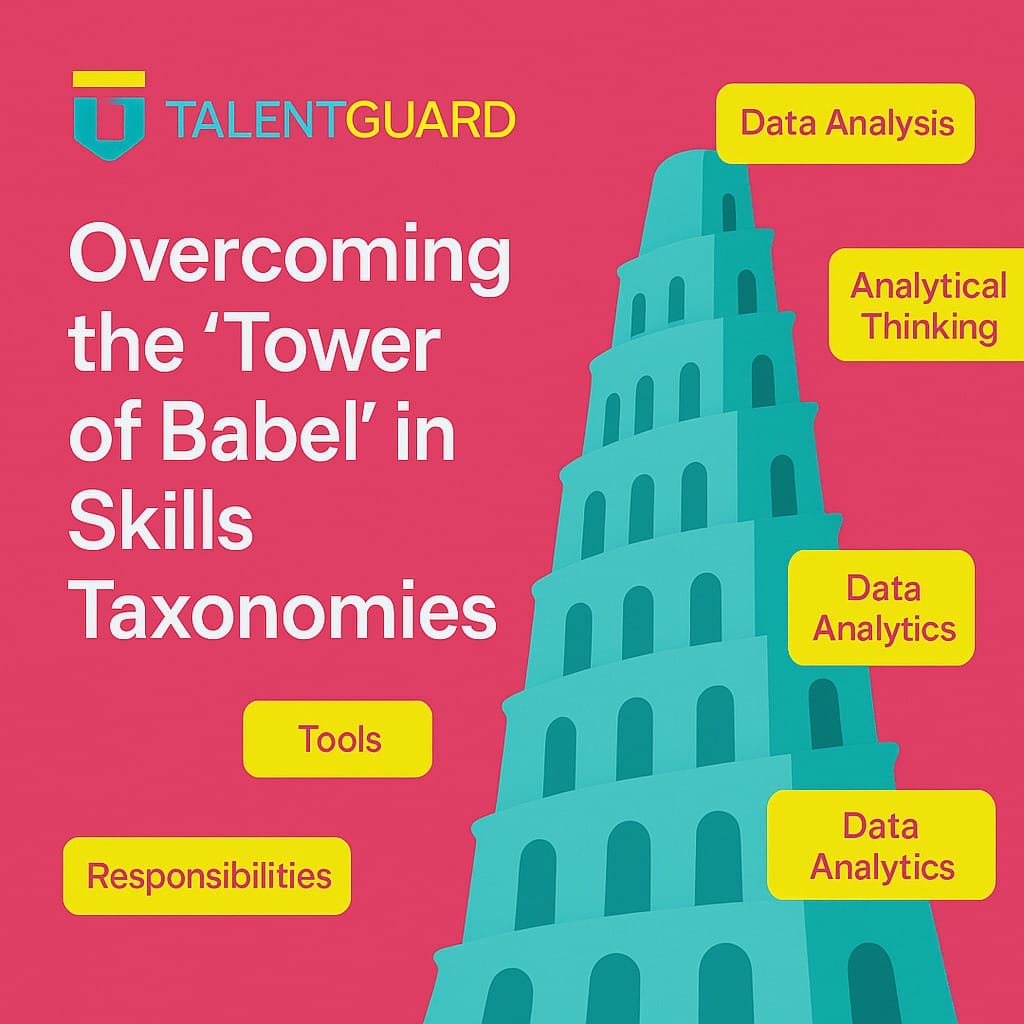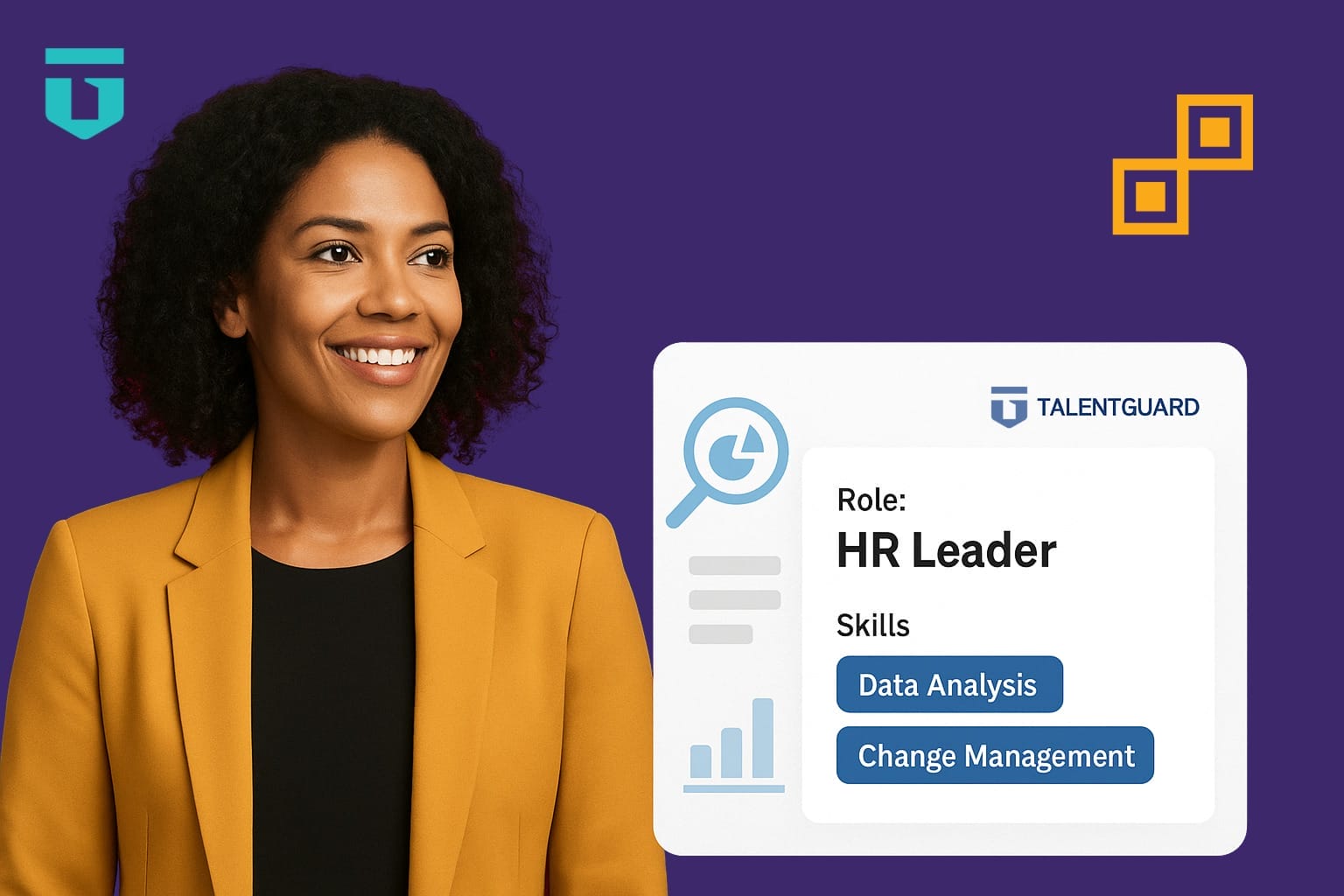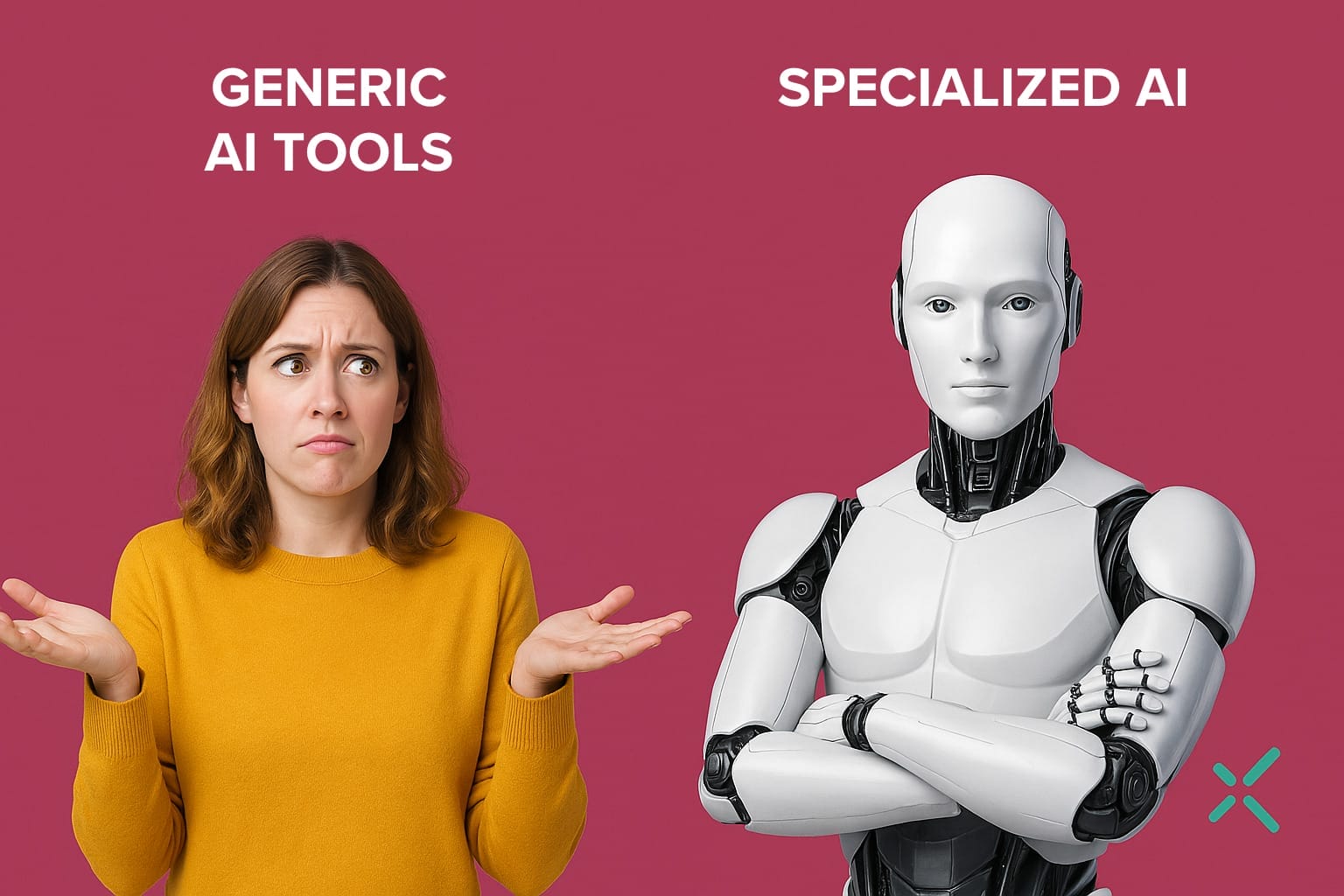Overcoming the “Tower of Babel” in Skills Taxonomies
TalentGuard’s Vision for a Unified Skills Language

As companies race to embrace skills intelligence, many are trapped in a modern-day “Tower of Babel.” The concept of skills-based organizations is no longer a futuristic ideal—it’s a present-day imperative. Each team, department, or technology vendor speaks a different skill language, resulting in fragmentation, confusion, and missed opportunities. At TalentGuard, we’re setting out to solve this problem—once and for all.
The Tower of Babel Problem in Skills Taxonomies
The “Tower of Babel” problem is a fitting metaphor for disjointed skills taxonomies across organizations and industries. Every platform—HRIS, LMS, ATS, talent marketplaces, and job architecture tools—defines and categorizes skills differently. Titles such as “data analysis,” “data analytics,” and “analytical thinking” may refer to the same capability but are treated as separate entities. Worse, some systems mix skills, tools, behaviors, and responsibilities without clear definitions or hierarchies.
This inconsistency leads to a host of issues:
- Poor interoperability across tools and vendors
- Misalignment between job roles and learning paths
- Inaccurate skills matching for internal mobility and recruiting
- Redundant or irrelevant learning recommendations
- Frustrated employees and HR leaders alike
As companies seek to become truly skills-based, this lack of a common language makes transformation harder than it needs to be.
The Challenges of Harmonizing Skills
Solving the Tower of Babel problem is no small feat. Among the core challenges:
- Proliferation of Skills Data Sources – Organizations rely on multiple data sources—marketplaces, public ontologies, job boards, and internal content—often providing contradictory or overlapping information.
- Lack of Standardization – There’s no universally accepted format or structure for representing skills. One system might treat “JavaScript” as a skill, another as a tool, and yet another as part of a broader capability.
- Rapid Skill Evolution – The half-life of a skill continues to shrink. Emerging technologies and trends create new capabilities faster than most taxonomies can adapt.
- Organizational Uniqueness – Each company has its DNA—its way of discussing roles, responsibilities, and expectations.
A one-size-fits-all taxonomy simply doesn’t work.
TalentGuard’s Approach to Unifying the Skills Language
At TalentGuard, overcoming the Tower of Babel requires a flexible, adaptive, and intelligent approach to skills data. Here’s how we’re tackling the challenge:
- Semantic Skills Intelligence- TalentGuard leverages advanced AI and natural language processing to understand the semantic meaning of skills, not just their labels. This means recognizing that “machine learning,” “ML,” and “predictive modeling” often refer to the same or related capabilities—even when worded differently.
- Skills Mapping & Normalization Engine – Our platform includes a powerful normalization engine that maps different skill labels to standardized, canonical representations. We consolidate, de-duplicate, and enrich skill data from multiple sources, building a unified skills framework that preserves organizational specificity while enhancing interoperability.
- Dynamic Taxonomy Management – Rather than locking clients into a rigid, static taxonomy, TalentGuard supports a dynamic and customizable taxonomies that evolve. Our tools allow organizations to curate, cluster, and tag skills based on their unique context while aligning with broader market and industry standards.
- Cross-System Interoperability – We integrate with a broad ecosystem of HR tech providers and learning platforms to ensure skills are consistently represented across systems. Whether mapping skills to learning content, career paths, or job roles, TalentGuard ensures the language stays coherent from end to end.
- Governance and Collaboration – Solving the Tower of Babel problem isn’t just a technical issue—it’s a governance challenge. TalentGuard supports collaborative curation workflows that engage stakeholders across HR, L&D, and business units, helping ensure that skills definitions are agreed upon, validated, and updated.
A Future of Skills Harmony
Our vision is clear: a world where organizations no longer struggle to reconcile fragmented skill definitions, where employees see coherent growth paths, and where skills intelligence flows seamlessly across systems. By building a unified and semantically rich skills foundation, TalentGuard empowers enterprises to navigate the future of work with clarity and confidence.
The Tower of Babel may have once led to confusion and chaos. But with the right approach, we believe organizations can turn this modern dilemma into a platform for alignment, agility, and innovation.
Solving the Tower of Babel problem?
To learn more, please request a demo.
See a preview of TalentGuard’s platform
AI Alignment: Caring About the Future of AI
Reposted from IHRIM WSR Magazine and Blog This fifth article in the “AI Buyers Guide for Human Resources (HR) Professionals” series highlights the critical need for AI Alignment across the many HR-related AI use cases. Artificial intelligence[1] (AI) is increasingly integrated into workplace processes, offering efficiency and automation in hiring and performance evaluations. However, AI […]
HR in the AI Era: Essential Skills for Leaders
Discover HR in the AI era and how leaders need to navigate the future of talent management with confidence and clarity. AI isn’t on the horizon anymore – it’s already reshaping how we work and evolving fast. HR Leaders now face the pressing reality of rapidly integrating AI-driven technologies into their talent management strategies. Even […]
Why General-Purpose AI Tools Fall Short in HR
Today’s HR teams face unprecedented pressure to integrate General-Purpose AI-driven tools to streamline talent management. On the surface, general-purpose AI tools like ChatGPT appear convenient – easy to access, intuitive, and seemingly helpful. However, HR requires unique demands, and these tools lack the specialized understanding that talent management needs. That’s where purpose-built AI for talent […]



